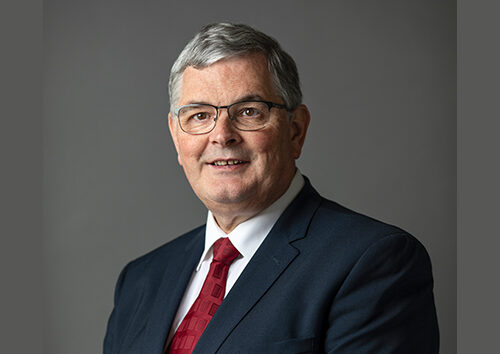02 April 2012 Silver Spring, Maryland, United States [Ansel Oliver/ANN] How much money would the Seventh-day Adventist Church have for mission each year if world membership records were accurate and each member returned a faithful tithe?
About US$14 billion.
The denomination currently receives about $2 billion annually.
That’s according to this year’s edition of the Global Tithing Index (GTI), which is a report measuring 2010 statistics of tithing faithfulness per capita across countries.
The GTI is published privately by Claude Richli, associate publisher of the Adventist Review and Adventist World magazines. Though not an official publication of the Seventh-day Adventist Church, the annual ranking can help administrators compare countries in similar regions and uncover trends.
This year’s GTI introduced a new measurement called the Total Tithe Potential, which shows the total tithe that should theoretically be received in a country if all Adventist Church members were faithful in tithing 10 percent of their income.
The total tithe potential for 2010 was about $14.1 billion. The same year, the Adventist Church received about $1.9 billion in tithe.
The GTI is an instrument that aims to level the field in comparing tithing faithfulness across countries that have economic disparity. It measures tithe per-capita by comparing a nation’s measure Gross Domestic Product with the aggregate tithe volume per country divided by the number of members on church rolls.
The GTI examines 104 countries and uses information from the General Conference of Seventh-day Adventists 2010 Statistical Report and the United States’ Central Intelligence Agency World Factbook.
Eritrea and Switzerland again topped this year’s annual ranking, followed by Austria, Denmark and France.
The GTI also indicates increasing faithfulness among members in countries such as Brazil, which in 2010 was responsible for about half of the gains in world tithe.
This year’s edition also offers stark evidence of how an audit of membership rolls reveals a more accurate gauge of members’ financial support. Nations that had big gains in ranking on the index this year – including Togo and Bolivia – were areas that Adventist Church leaders have recently conducted membership audits.
Togo jumped to number 7 on the ranking, up from the 38th spot last year. Richli attributed the jump entirely “to the courageous decision on the part of its leadership to drop all missing members,” he wrote in the report.
In 2010, Togo reported 5,343 members, a 52 percent drop from 11,028 the previous year.
That move, Richli said, showed that active members in Togo were as faithful as their counterparts in affluent countries. The church’s action in Togo, however, puts a spotlight on the “obvious need” for membership audits in many countries, Richli wrote.
Unfortunately, Richli said, about one-third of countries surveyed contribute less than 10 percent of total tithe potential. He said that figure “clearly shows that in those countries, church rolls are vastly inflated.”
Two advisors on the project are business professors at the Adventist International Institute for Advanced Studies, a graduate school in the Philippines and directly affiliated with the Adventist Church’s world headquarters.
“In looking at the GTI reports over the years, it’s been evident when church administration has taken clear steps to address issues in financial governance and membership records,” said Ronald Vyhmeister, director of the business program at AIIAS and a consultant to the GTI.
“This year again the membership record issue stands out as an issue that quite evidently needs to be addressed in many parts of the world,” Vyhmeister said.
Other trends noted in this year’s report include tithing in Europe, which shows a mixed picture. Some countries, such as the United Kingdom and Norway, show a gradual improvement following the start of the recession, but countries such as Spain show that the recession is severely affecting giving there.
Also, three countries ranked in the denomination’s Southern African Union – South Africa, Lesotho and Swaziland – confirm that their rise in previous years was not due to a statistical distortion; each are among the top 20 countries, ranking solidly in the middle of the Western countries.
See the full report here: http://www.aiias.edu/gti/reports.html [tedNEWS]
tedNEWS Staff: Miroslav Pujic, director; Deana Stojkovic, editor
119 St Peter’s Street, St Albans, Herts, AL1 3EY, England
E-mail: [email protected]
Website: www.ted-adventist.org
tedNEWS is an information bulletin issued by the communication department of the Seventh-day Adventist Church in the Trans-European Division.
You are free to re-print any portion of the bulletin without need for special permission. However, we kindly request that you identify tedNEWS whenever you publish these materials.


